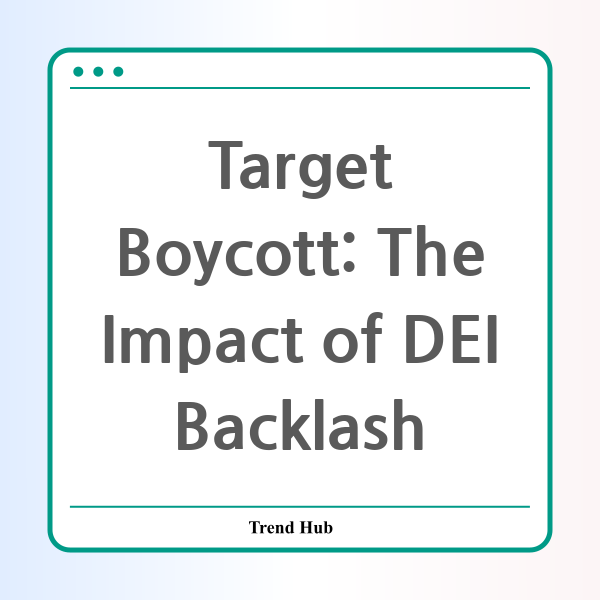* This website participates in the Amazon Affiliate Program and earns from qualifying purchases.

Is the Target boycott a sign of the times? As the retail giant faces mounting pressure from both conservatives and advocates for diversity, equity, and inclusion (DEI), the fallout from its decision to roll back DEI efforts has sparked heated debates and significant shifts in consumer behavior. The ongoing situation raises questions about corporate responsibility in social issues and the evolving landscape of customer loyalty.
Recently, the Rev. Jamal Bryant, a prominent pastor from Georgia, has reignited calls for a full boycott of Target, emphasizing that the retailer has not adequately addressed the demands put forth by advocates for racial equity. The demands include restoring Target's commitment to its previous DEI initiatives and providing support to Black-owned businesses and banks. As the backlash grows, what does this mean for the corporation and its customers?
In January, Target announced a rollback of its diversity initiatives, a decision that immediately attracted criticism from customers who felt betrayed by the company’s previous commitment to diversity. Following the announcement, foot traffic at Target stores reportedly declined significantly—by 9% year over year in February and 6.5% in March. Although various factors may have contributed to this decline, the boycott led by Rev. Bryant—characterized as a 40-day shopping fast—has been identified as a critical element in decreasing sales.
The 40-day shopping fast during Lent, which started on March 5, had garnered participation from over 200,000 individuals, united in their stance against Target’s perceived retreat from supporting DEI principles. As Target sought to align with certain political pressures, the retailer found itself walking a tightrope between maintaining a broad customer base and addressing calls for inclusivity from its communities.
While the company stated its ongoing commitment to inclusivity, the rollback of key DEI initiatives—such as the elimination of hiring goals for minority employees—has raised eyebrows. The decision reflects the broader culture wars that are increasingly influencing corporate policies across the nation. The challenge that Target faces underscores how consumer preferences can shift rapidly in the context of social justice initiatives and corporate accountability.
To put this into perspective, Black Americans are projected to possess a buying power of $2 trillion by 2026. This demographic shift highlights the importance of not only maintaining DEI efforts but actively investing in communities of color. As customers become increasingly aware of corporate actions, they are more likely to vote with their wallets, supporting brands that align with their values.
In response to the growing backlash, some leaders in the community, including Rev. Bryant, have encouraged consumers to shift their spending to Black-owned businesses. This advocacy is not merely a boycott of Target but a broader movement aimed at redistributing economic power into communities that have historically been marginalized. By opening the "Bullseye Black Market," which features over 100 Black-owned businesses, Bryant is actively fostering alternatives to traditional corporate structures.
Target's recent changes in DEI initiatives, coupled with pushback from advocates, signify a critical point in retail where customer loyalty and social responsibility intersect. The company’s approach to DEI will need to adapt as it navigates customer sentiments. By re-engaging with these communities and rebuilding trust, Target may not only recover its consumer base but also reinforce its brand identity around inclusivity and social responsibility.
Ultimately, the outcomes of this boycott will shape future corporate policies and community engagement models. As consumers become more vocal about their expectations, companies will need to consider how they communicate their values and commitments to diversity and inclusion.
* This website participates in the Amazon Affiliate Program and earns from qualifying purchases.